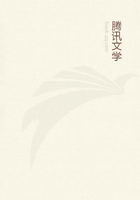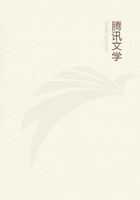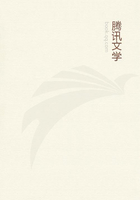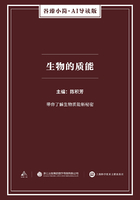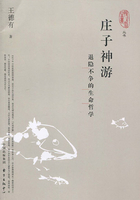Then the Spanish Government came to the conclusion that nothing but the most rigorous sort of reprisals would check the excesses of the rebels. In 1896 it commissioned Valeriano Weyler, an officer who personified ferocity, to put down the rebellion. If the insurgents had fancied that the conciliatory spirit hitherto displayed by the Spaniards was due to irresolution or weakness, they found that these were not the qualities of their new opponent. Weyler, instead of trying to suppress the rebellion by hurrying detachments of troops first to one spot and then to another in pursuit of enemies accustomed to guerrilla tactics, determined to stamp it out province by province. To this end he planted his army firmly in one particular area, prohibited the planting or harvesting of crops there, and ordered the inhabitants to assemble in camps which they were not permitted to leave on any pretext whatever. This was his policy of "reconcentration." Deficient food supply, lack of sanitary precautions, and absence of moral safeguards made conditions of life in these camps appalling. Death was a welcome relief.
Reconcentration, combined with executions and deportations, could have but one result--the "pacification" of Cuba by converting it into a desert.
Not in the United States alone but in Spain itself the story of these drastic measures kindled popular indignation to such an extent that, in 1897, the Government was forced to recall the ferocious Weyler and to send over a new Governor and Captain General, with instructions to abandon the worst features of his predecessor's policy and to establish a complete system of autonomy in both Cuba and Porto Rico. Feeling assured, however, that an ally was at hand who would soon make their independence certain, the Cuban patriots flatly rejected these overtures. In their expectations they were not mistaken. By its armed intervention, in the following year the United States acquired Porto Rico for itself and compelled Spain to withdraw from Cuba.** See "The Path of Empire", by Carl Russell Fish (in "The Chronicles of America").
The island then became a republic, subject only to such limitations on its freedom of action as its big guardian might see fit to impose. Not only was Cuba placed under American rule from 1899 to 1902, but it had to insert in the Constitution of 1901 certain clauses that could not fail to be galling to Cuban pride. Among them two were of special significance. One imposed limitations on the financial powers of the Government of the new nation, and the other authorized the United States, at its discretion, to intervene in Cuban affairs for the purpose of maintaining public order. The Cubans, it would seem, had exchanged a dependence on Spain for a restricted independence measured by the will of a country infinitely stronger.
Cuba began its life as a republic in 1902, under a government for which a form both unitary and federal had been provided. Tomas Estrada Palma, the first President and long the head of the Cuban junta in the United States, showed himself disposed from the outset to continue the beneficial reforms in administration which had been introduced under American rule. Prudent and conciliatory in temperament, he tried to dispel as best he could the bitter recollections of the war and to repair its ravages. In this policy he was upheld by the conservative class, or Moderates.
Their opponents, the Liberals, dominated by men of radical tendencies, were eager to assert the right, to which they thought Cuba entitled as an independent sovereign nation, to make possible mistakes and correct them without having the United States forever holding the ferule of the schoolmaster over it.
They were well aware, however, that they were not at liberty to have their country pass through the tempestuous experience which had been the lot of so many Hispanic republics. They could vent a natural anger and disappointment, nevertheless, on the President and his supporters. Rather than continue to be governed by Cubans not to their liking, they were willing to bring about a renewal of American rule. In this respect the wishes of the Radicals were soon gratified. Hardly had Estrada Palma, in 1906, assumed office for a second time, when parties of malcontents, declaring that he had secured his reelection by fraudulent means, rose up in arms and demanded that he annul the vote and hold a fair election. The President accepted the challenge and waged a futile conflict, and again the United States intervened. Upon the resignation of Estrada Palma, an American Governor was again installed, and Cuba was told in unmistakable fashion that the next intervention might be permanent.
Less drastic but quite as effectual a method of assuring order and regularity in administration was the action taken by the United States in another Caribbean island. A little country like the Dominican Republic, in which few Presidents managed to retain their offices for terms fixed by changeable constitutions, could not resist the temptation to rid itself of a ruler who had held power for nearly a quarter of a century. After he had been disposed of by assassination in 1899, the government of his successor undertook to repudiate a depreciated paper currency by ordering the customs duties to be paid in specie; and it also tried to prevent the consul of an aggrieved foreign nation from attaching certain revenues as security for the payment of the arrears of an indemnity. Thereupon, in 1905, the President of the United States entered into an arrangement with the Dominican Government whereby, in return for a pledge from the former country to guarantee the territorial integrity of the republic and an agreement to adjust all of its external obligations of a pecuniary sort, American officials were to take charge of the custom house send apportion the receipts from that source in such a manner as to satisfy domestic needs and pay foreign creditors.** See "The Path of Empire", by Carl Russell Fish (in "The Chronicles of America").

